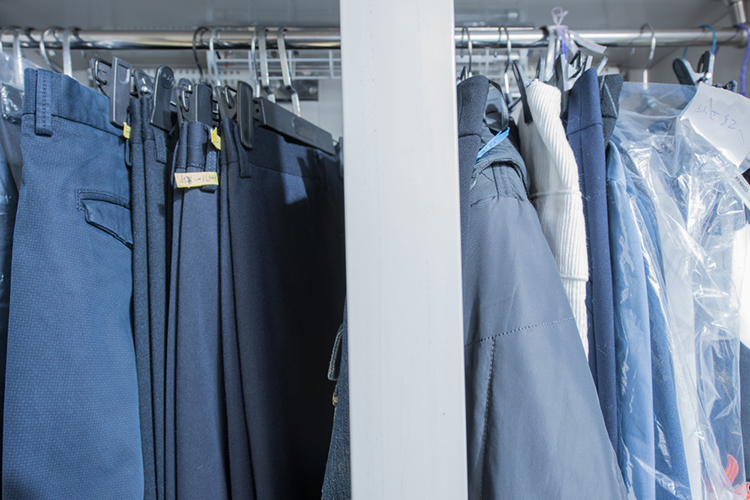Lawyer gets suspended for pursuing lawsuit of more than $67M over lost pants

Image from Shutterstock.com.
The District of Columbia Court of Appeals has suspended a former administrative law judge who claimed in a lawsuit that a dry cleaners owed him more than $67 million for losing his pants.
The appeals court ordered the suspension of lawyer Roy Pearson Jr. for 90 days in a June 4 opinion noted by the Legal Profession Blog.
Bloomberg Law, Law.com and Law360 have coverage.
Pearson lost the lawsuit and did not get reappointed as an administrative law judge for the Office of Administrative Hearings in Washington, D.C. He also lost a lawsuit that claimed that he was a whistleblower who lost his job for complaining about workplace procedures, according to Law360.
A hearing committee had recommended a stayed suspension for Pearson’s conduct in the pants lawsuit, while the District of Columbia Board on Professional Responsibility recommended a 90-day suspension.
The appeals court agreed with the board’s recommendation, saying Pearson did not accept responsibility for his actions—or even contemplate that his conduct violated ethics rules.
Pearson initially demanded $15,000 for emotional distress and $15,000 in punitive damages against Custom Cleaners for losing his pants in 2005. He based his claims on D.C. consumer protection law and signs at the cleaners that said, “Satisfaction Guaranteed,” “Same Day Service,” and “All Work Done on Premises.”
Pearson’s compensation demands “escalated dramatically” as the case went on, eventually reaching $67 million, the appeals court said. The owners of the dry cleaners had made three offers of judgment that topped out at $12,000, all rejected by Pearson.
Pearson argued the “satisfaction guaranteed” sign represented an unconditional and unlimited guarantee of satisfaction, even if a customer’s claim is not made in good faith and an exorbitant amount of money is needed to bring satisfaction.
During the litigation, Pearson misquoted a case and accused the trial judge of bias. His litigation choices made the case time-intensive, according to findings of fact.
“As his theories expanded and his tactics grew more extreme, [Pearson] failed to comply with his continuing responsibility to conduct an objective evaluation of the merits of his claims,” the appeals court said.
The appeals court said Pearson’s total damages figure of more than $67 million “is shocking in itself.” “The constituent parts” of that figure “are equally troubling,” the court said.
Pearson asked for $90,000 to rent a car needed to drive to another dry cleaner, sought $3 million for emotional distress, and requested ongoing services from the dry cleaner.
“Pearson did not make the required objective inquiry into whether his liability claims had even a faint hope of success,” the court said. “Instead, he did the opposite, steadfastly refusing to acknowledge contrary legal authority, engaging in extensive puffery, and pressing his preferred interpretations of the signs even after they were rebuffed by his own witnesses at trial. Indeed, even in his filings in this disciplinary case, he has continued to refer to his theories as ‘indisputable.’ ”
Similarly, during the ethics case, Pearson chose to litigate the charges with the same type of tactics that he used in the lost-pants case, the court said, noting the finding by the District of Columbia Board on Professional Responsibility.
In mitigation, Pearson had no prior disciplinary history.
A person who answered the phone at a number listed for Pearson hung up when the ABA Journal asked whether he was Roy Pearson Jr.



